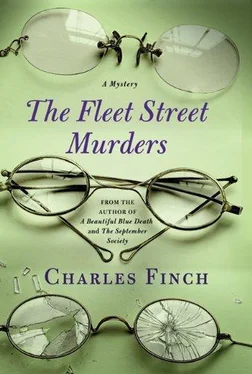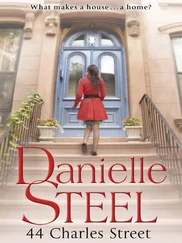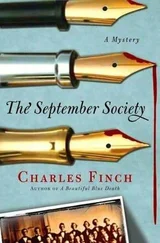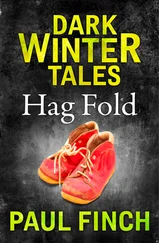Charles Finch - Fleet Street murders
Здесь есть возможность читать онлайн «Charles Finch - Fleet Street murders» весь текст электронной книги совершенно бесплатно (целиком полную версию без сокращений). В некоторых случаях можно слушать аудио, скачать через торрент в формате fb2 и присутствует краткое содержание. Жанр: Исторический детектив, на английском языке. Описание произведения, (предисловие) а так же отзывы посетителей доступны на портале библиотеки ЛибКат.
- Название:Fleet Street murders
- Автор:
- Жанр:
- Год:неизвестен
- ISBN:нет данных
- Рейтинг книги:5 / 5. Голосов: 1
-
Избранное:Добавить в избранное
- Отзывы:
-
Ваша оценка:
- 100
- 1
- 2
- 3
- 4
- 5
Fleet Street murders: краткое содержание, описание и аннотация
Предлагаем к чтению аннотацию, описание, краткое содержание или предисловие (зависит от того, что написал сам автор книги «Fleet Street murders»). Если вы не нашли необходимую информацию о книге — напишите в комментариях, мы постараемся отыскать её.
Fleet Street murders — читать онлайн бесплатно полную книгу (весь текст) целиком
Ниже представлен текст книги, разбитый по страницам. Система сохранения места последней прочитанной страницы, позволяет с удобством читать онлайн бесплатно книгу «Fleet Street murders», без необходимости каждый раз заново искать на чём Вы остановились. Поставьте закладку, и сможете в любой момент перейти на страницу, на которой закончили чтение.
Интервал:
Закладка:
They went in and found a hot, roaring fire at one end and a decent trade for the time of day; in chalk on a board were lunch specials (lamb with potatoes, hearty beef stew, hot wine), and Lenox’s hunger returned to him with a growl. A pretty, busy girl was coming to and fro from the kitchen, while a massive, red-nosed gentleman stood behind the bar, pouring drinks with surprisingly deft hands. He had on a bottle green spencer jacket, and a dirty towel was slung over each shoulder. This, Lenox saw, was Mr. Crook.
“Shall we have a bite?” Lenox asked with barely concealed yearning.
“Best ask Mr. Crook,” said Hilary sympathetically. “We’ve much work to do.”
“Yes, yes.”
They approached the bar, a wide, immaculately clean slab of slate, with glasses hanging above it and gleaming brass fixtures at either end. Like the outside of the house, the pub’s inside seemed the province of a fastidious, clean, and honest man.
“Gentlemen,” he said in a heavy northern voice. “Here for dinner?”
“I’m Hilary, actually. I sent word of our arrival. This is Charles Lenox, your candidate.”
Crook gave them both an evaluating look. “Very pleased to meet you, Mr. Lenox,” he said. “I promise nothing, let me say from the start.”
“I understand.”
“Still, we shall do our best, and I daresay by the end we’ll see you through, and before long you can return to London and forget all about us. Johnson, another pint of mild?”
Before Lenox had a chance to deny Crook’s prediction, the tender was already sliding a pint glass of foamy, rich brown ale down the bar. It looked lifesaving to Lenox’s eye.
“Thank you for your help,” said Lenox.
“Well-and you look solid enough.” This Crook said rather glumly. “It will be difficult.”
“Do we have time to sit for a moment and eat?”
“No,” said Crook. “Lucy!” he shouted. “Bring a couple of roasted beef sandwiches.”
The pretty girl raised her hand in brief acknowledgment.
“You two must go-with money, mind-straight to the printers. We need handbills, flyers, posters, all that sort of thing-we need ’em before the end of the day. I’ve designed it all, but run your eyes over what he has. Lucy!”
The girl returned with two sandwiches. Without either of the two Londoners noticing, Crook had poured two half-pints of mild and pushed them across the bar. “You look peaky,” he said. “Drink these off and eat on your way. Six doors down, to your left. Make sure you bring cash. The stables have your bags? Good, I’ve got two rooms for you. Nice to meet you, Mr. Lenox. Mr. Hilary. All will turn out well if you trust me. Clark, one more pint of bitter before you go back to work?”
With that their introduction to Edward Crook was over, and the two men looked at each other, shrugged, and turned away, both taking ravenous bites of their sandwiches before they left.
“What do you think?” asked Hilary as they walked down the street.
“He seems competent.”
“Fearfully so, I should have said.”
“The sort of chap we want on our side, rather than the other,” Lenox added.
“Yes, absolutely. By God, these sandwiches aren’t half bad, are they? Look, this must be the printer.”
CHAPTER SIX
Crook, it emerged, was a gloomy, blunt, and practical man; Lenox took to him straightaway. He was honest and fair and had a straightforward way of speaking that engendered in his listeners an instant trust. When that evening he introduced Lenox to the small circle of businessmen and shopkeepers who formed the local party committee, he didn’t heap praise on the detective’s head. He merely said that he thought they had a candidate who could ably replace Stoke, a candidate with sufficient funds to have his voice heard, a candidate willing to work hard, and a candidate who would be-beyond any doubt-a better representative of Stirrington’s interests in Parliament than Robert Roodle, the brewer and Conservative.
After they had returned from the printers that afternoon, Crook had described the situation. “Roodle’s not well liked here, and that’s what will matter most. There’re no strong feelings about you either way, but Roodle has alienated people in a number of ways. As soon as his brewery grew, he moved it out of Stirrington; he has a farm outside town and has been in a long legal battle with both of his neighbors; and whether it’s fair or not his father was known as the most tightfisted, intemperate sod in the county. He used to beat his horses and drove his wife like a donkey. Be that as it may, there’s no mistaking Roodle’s success. Half of Durham’s pubs are Roodle pubs. He also has one other great point, in local terms.”
“What’s that?” asked Hilary with some alarm.
“He’s from here. In the north we value our own, you see.”
Indeed, as they had walked that day about town Hilary and Lenox had seen numerous flyers on that subject. “Two weeks in Stirrington, or a lifetime? Who knows you better? Vote Roodle,” read one. “Vote your own-vote Roodle,” said another.
Lenox saw the fairness of the point. It was a strange political system that led to Hilary representing Liverpool, while the Liberal Party’s current leader in the House, William Gladstone, had grown up in Liverpool but for a long time represented Oxford, of all places. Still, he also believed that his platform would genuinely help the people of Stirrington more than Roodle’s, and he resented the negative, attacking nature of Roodle’s campaign. He was ready to fight.
Lenox’s own campaign handbills were, he thought, singularly effective; they advertised what they called his “Five Promises.” Crook had written it up, and Hilary (who was invaluable for this sort of task) had revised it. The only promise that both the printer and Crook had absolutely insisted upon keeping was for a lower tax on beer. This wasn’t self-interest, Crook rather defensively assured them, but the most important issue to many Stirringtonians.
Better still, Roodle was in a bind over the beer tax. He had vocally supported a lower beer tax for many years (as a brewer interested in selling as many pints as possible), but now he found himself on the wrong side of his party, and rather than alienate the aid he received from London he had switched positions. Crook felt this hypocrisy was important, if only to show how weak willed Roodle would be if elected.
At the committee meeting there was a great deal of detailed talk about Lenox’s schedule for the next several days; by this time he was faint with fatigue, however-Hilary was still impressively spry, but he was younger-and only half heard the plan for a series of speeches, a debate, a meeting with county officials, and visits to several dances, balls, and livestock auctions. The idea was to make Lenox as visible as possible to compensate for the short time he had in which to present his platform. Through all of this conversation Crook was a gentle but forceful guide. His authority was obvious.
At last Lenox was allowed to go to sleep. In his plain, quite clean room, which had a small warm grate near the bed, he drifted off into a grateful rest, so tired that he only for a passing moment worried about McConnell and Toto.
In the morning, to Lenox’s surprise, his coffee appeared via a familiar bearer; it was Graham.
“Thank goodness you’re here, Graham.”
“I arrived late last night, sir.”
“You’re not exhausted, I hope?”
“I slept very well, sir. May I ask how things have progressed here?”
“Very well, I think, though I’m pulled in five different directions at once.”
“Such is the nature of campaign life, sir, or so I have heard.”
“Indeed it is, Graham.” Lenox took a sip of coffee and instantly felt livelier. “Well, I’m prepared for the battle.”
Читать дальшеИнтервал:
Закладка:
Похожие книги на «Fleet Street murders»
Представляем Вашему вниманию похожие книги на «Fleet Street murders» списком для выбора. Мы отобрали схожую по названию и смыслу литературу в надежде предоставить читателям больше вариантов отыскать новые, интересные, ещё непрочитанные произведения.
Обсуждение, отзывы о книге «Fleet Street murders» и просто собственные мнения читателей. Оставьте ваши комментарии, напишите, что Вы думаете о произведении, его смысле или главных героях. Укажите что конкретно понравилось, а что нет, и почему Вы так считаете.












